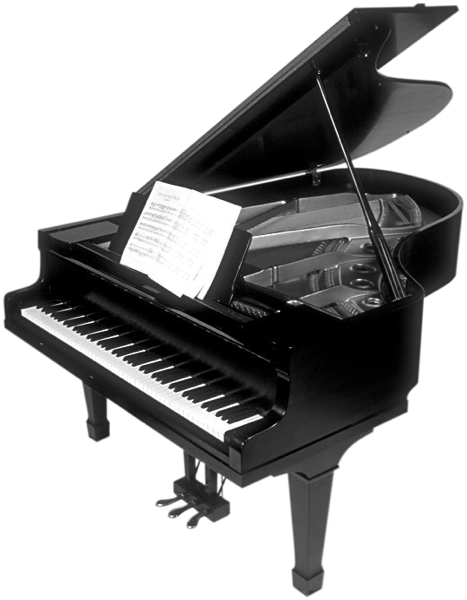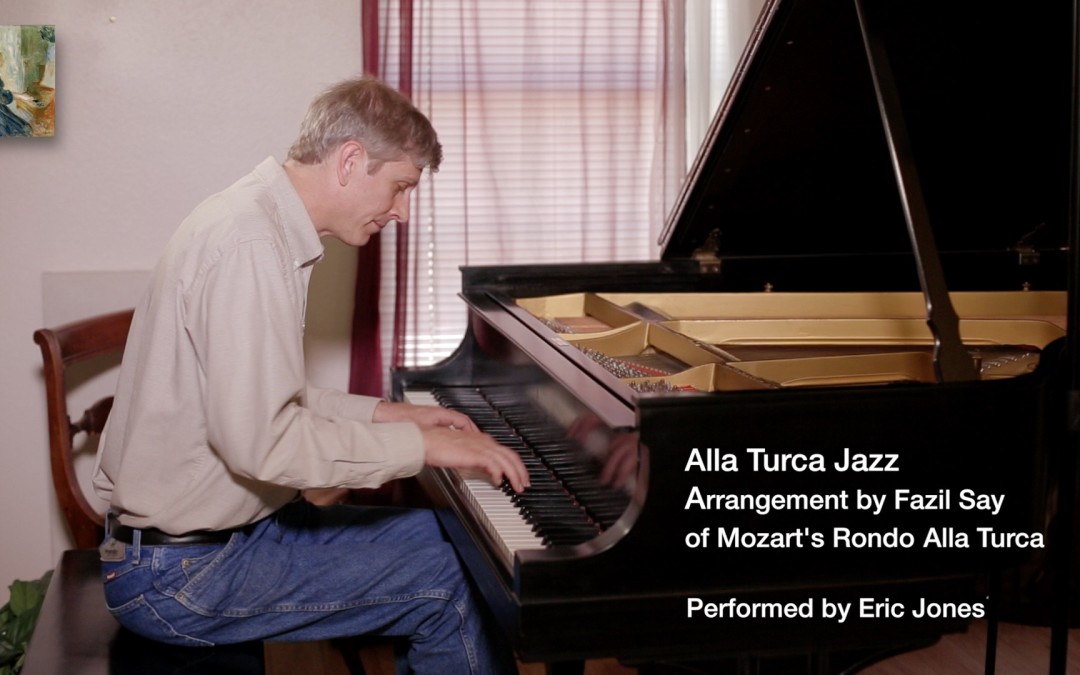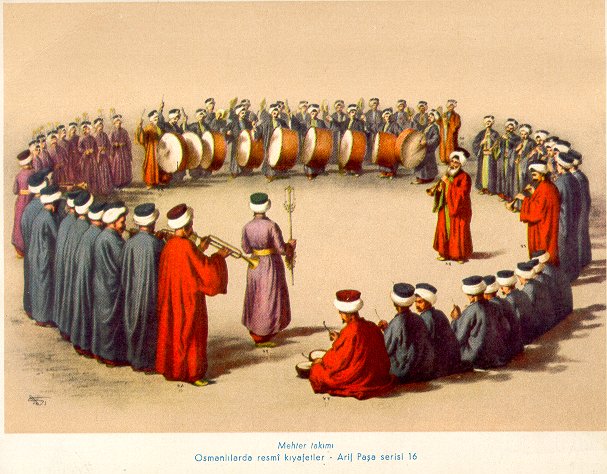Turkish, jazz, or classical?
There is very little that is Turkish or even “jazz” about the whimsical and delightful “Alla Turca Jazz” piano arrangement, but it was in fact conceived by a real Turk! This piece was arranged by the talented Turkish composer and pianist, Fazil Say, in 1993. Say took Mozart’s famous Rondo alla Turca, and put a spin on it. Broadly speaking, it’s a “jazzy” spin, but perhaps Ragtime would be the style that more accurately describes the departure from Mozart’s purely classical rendition. Fazil Say is not only a creative arranger, but has composed and performed a significant number of pieces for piano, orchestra, chamber ensembles, theater and cinema and is definitely worth checking out!: http://fazilsay.com
My own performance of Fazil Say’s “Alla Turca Jazz” tries to follow at least one of his published versions, but I do take some of my own improvisational liberties…all in the spirit of jazz, of course!
Mozart meets Turkey
So how did Mozart get involved with Turkish music? Actually, he really didn’t. If you listen to real Turkish music (traditional or modern), you’ll soon discover that modally, rhythmically, melodically, structurally, and in just about every other way, there is little in common with Mozart’s Rondo alla Turca. If you want to hear a real convergence of genuine Turkish music with contemporary western influences, check out the music of one of my favorite modern Turkish musicians, Omar Faruk Tekbilek.
The Exotic Band
Nonetheless, in the latter half of the 18th century, during Mozart’s time, Western Europeans had a fascination with the Ottoman Empire, which by then had waned in military influence and was no longer a direct threat to places like Vienna. While the European conception of Ottoman Turkish culture was often far removed from reality, it remained an exotic part of their imagination. On occasion, visiting Ottoman dignitaries and ambassadors arrived to western European courts along with their military bands (Mehters or Janissary bands) and played their form of ceremonial music (known as Janissary music). It was perhaps on such an occasion that Mozart may have been exposed to Turkish military (“march”) music.
Chic and Trendy
A number of classical composers took advantage of the European fascination with the Ottoman world and composed pieces which at least make reference to the Turkish culture in name, if not in the actual music. At some point in the late 1700’s (possibly 1778), Mozart penned his Piano Sonata in A Major (No. 11), which included his famous Rondo alla Turca (or Rondo “in the Turkish style”), popularly known as the “Turkish March”. I admit that I still don’t hear the Turkish influence, but if you want to read an interesting (and scholarly) article on the influence of Turkish music on western classical composers, including Mozart, Catherine Schmidt-Jones has written an excellent essay.
If you’re interested in hearing what an actual Turkish Mehter or Janissary Band might have sounded like, here is a video of a band playing at the military museum in Instanbul, Turkey:



Recent Comments